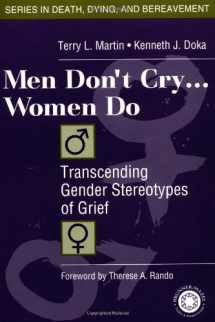
Men Don't Cry, Women Do: Transcending Gender Stereotypes of Grief (Series in Death, Dying, and Bereavement)
Book details
Summary
Description
Do men and women grieve differently? This text, while emphasizing that there are many ways to cope with grief, offers a refreshing change from the popular gender stereotypes of grief. Two patterns of grieving are described: an intuitive pattern where individuals experience and express grief in an affective way (stereotyped as female); and an instrumental pattern where grief is expressed physically or cognitively (stereotyped as male). A third pattern representing a blending of these two is also introduced. Of critical importance is that such patterns are related to, but not determined by, gender; and each has distinct strengths and weaknesses.
Organized into three main parts, this topical new text begins by defining terms, introducing and delineating the grief patterns, and rooting the book's concept in contemporary theories of grief. The second part speculates on factors that may influence individuals' patterns of coping with loss (e.g., personality, gender, culture, etc.). The final part considers implications and therapeutic interventions likely to be effective with different types of grievers.


We would LOVE it if you could help us and other readers by reviewing the book
Book review





